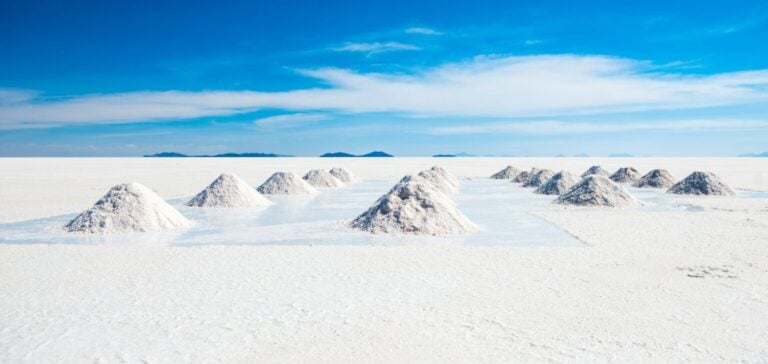Bolivia has taken a decisive step in developing its lithium industry. During an official ceremony, the Bolivian government, through the public company Yacimientos de Litio Bolivianos (YLB), signed a contract with the Chinese company Hong Kong CBC Investment, a subsidiary of CATL, the world’s leading lithium battery producer.
This partnership involves an investment of approximately $1 billion for the construction of two plants in the Uyuni salt flats, located in southwestern Bolivia. These facilities, critical for leveraging the country’s natural resources, will have production capacities of 10,000 and 25,000 metric tons of lithium carbonate per year, according to a statement from YLB.
A Strategic Player on the Global Scene
Bolivian President Luis Arce emphasized the importance of this agreement for Bolivia’s positioning in the global market. “We will become a major player in determining international lithium prices,” he stated. This metal, essential for producing batteries for electric and hybrid vehicles, plays a key role in the global energy transition.
Bolivia claims to have the world’s largest lithium reserves, estimated at 23 million metric tons. However, the extractable volumes remain to be confirmed due to technical and economic challenges associated with its extraction.
A Surge in Foreign Investments
This new agreement is part of a series of similar initiatives. In September, YLB had already signed a partnership with the Russian group Uranium One for the construction of a plant capable of producing 14,000 metric tons of lithium carbonate per year, with an investment of $970 million. However, these projects still require approval from Bolivian lawmakers, a process potentially delayed by internal political tensions.
President Arce urged legislators to expedite the legal procedures to avoid hindering the country’s economic development. “We hope they will stop blocking government initiatives and benefits for the Bolivian people,” he added.
Prospects for Collaboration with Other Partners
In addition to this agreement with Hong Kong CBC Investment, negotiations are ongoing with Citic, another Chinese state-owned company, for the establishment of new processing plants. According to Arce, these talks could conclude soon, further solidifying Bolivia’s position as a strategic lithium supplier.
Despite these promising advancements, questions remain regarding the sustainability and environmental impact of intensive lithium exploitation. Initiatives for battery recycling and innovative technologies will be essential to address these concerns in the context of growing global demand.





















